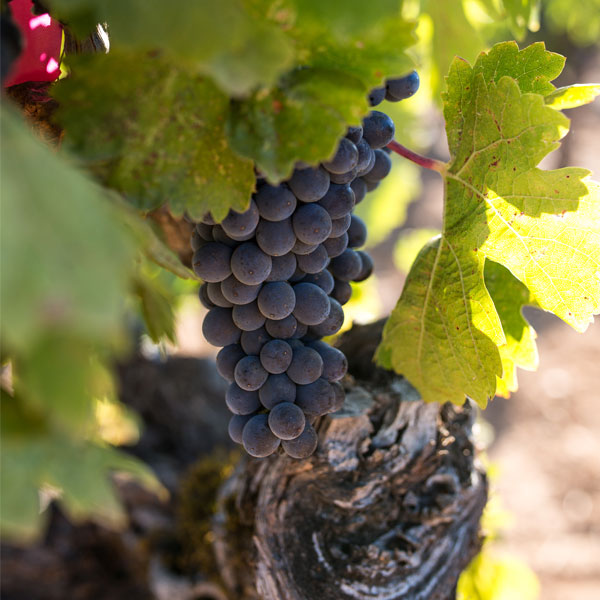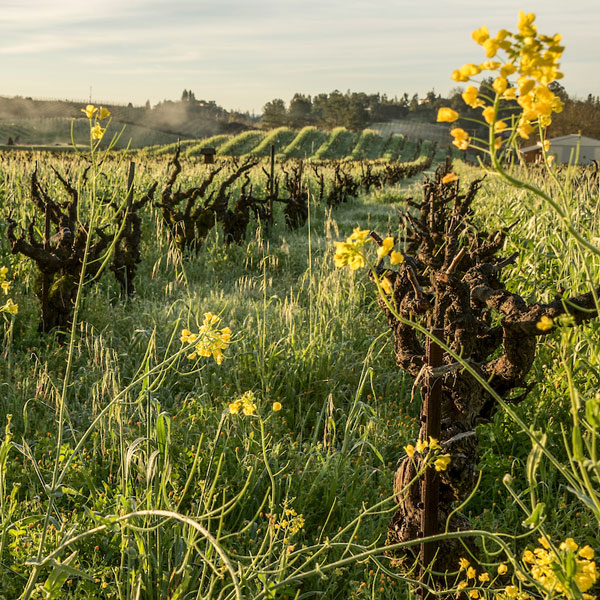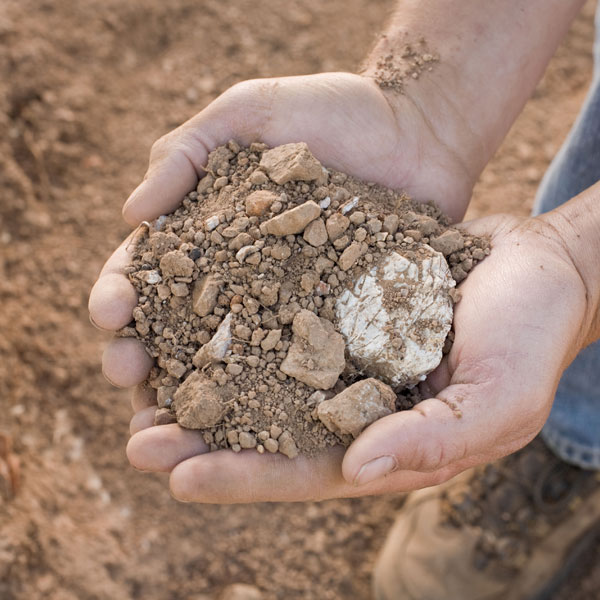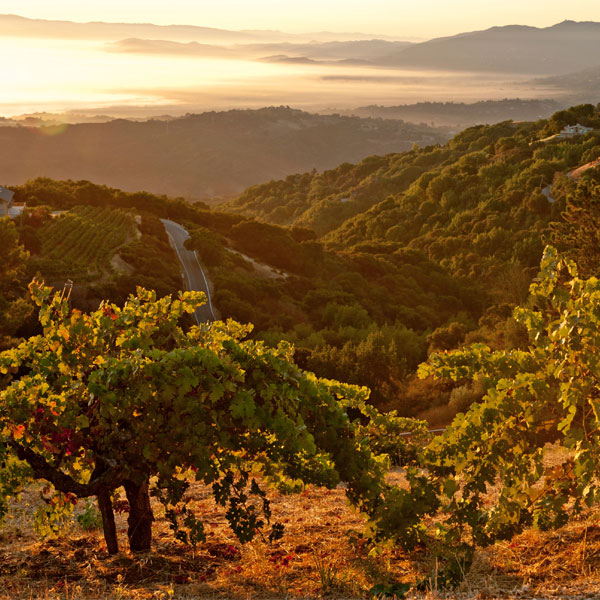Our Farming Philosophy
Starting in 2008, we began the transition to farming our estate vineyards organically in order to bring our vineyard management techniques in line with our traditional winemaking practices, which employ only the non-invasive treatments used in fine winemaking prior to Prohibition.
Distinctive Fruit from Exceptional Vineyards

We have always believed that wine is far more interesting and meaningful when it reflects a single place and a natural process. Our commitment to farming our vineyards responsibly means that we maintain certain principles in the vineyard, including biodiversity, ecological balance, sustainability, natural pest management, and soil integrity.
Limited Intervention in Vineyards

We strive to limit “inputs” into the vineyard. Seeding our vineyards with non-vine plants attracts beneficial predatory insects, which mitigates the need to apply an insecticide that might cause harm to non-targeted species like bees. This process also eliminates the possibility that any insecticide residue could be present on the grapes during harvest.
Careful Management of Soil Health

Maintaining soil health is critical to an effective farming operation. To preserve soil structure, we only cultivate every other row between grapevines. At both of our winery facilities, we collect the stems and pomace left over from winemaking to make organic compost. This compost is applied to sections of the vineyard where our standard winter cover crop does not fully satisfy the nutritional needs of the vines.
Pre-Industrial Practices to Reflect a Sense of Place

It is uncommon for a winery to produce any significant quantity of wine using such a natural approach, taking sustainably and organically-grown grapes and turning them into wine using only “pre-industrial” winemaking methods. Ultimately, the ends justify the means, because wines made in this fashion more aptly express their provenance and are far more gratifying to make and drink.
Wait!
In order to qualify for user related discounts, you must log in before proceeding with checkout. Click the button below to log in and receive these benefits, or close the window to continue.
Log In